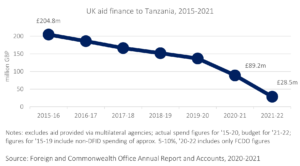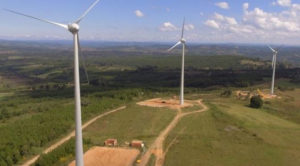by Ben Taylor
Kabanga Nickel mine approved
A potentially lucrative new nickel mine has been approved at Kabanga, in Ngara Distrist in north-west Tanzania. The Ministry of Minerals in October awarded a mining licence for the project to Tembo Nickel Corporation Limited (TNCL). After a two-year construction phase, commissioning is expected to start at the end of 2024. The overall capital cost estimate for Kabanga (including a 20% contingency for overruns) is USD $1.3 billion.
Minerals minister Doto Biteko said the feasibility report showed total deposits of 58 million tonnes of nickel ore.
“The mining operations are expected to be conducted by underground mining method whereby production is expected to reach an average of 600,000 tonnes of ore per annum in the first five years, and later to 2.2 million tonnes per annum,” he said.
Operating at full capacity, and assuming the resource proves to be as productive as expected, the mine has the potential to become the world’s third largest nickel mine.
The concentrates produced from the mine will be transported to refinery which is to be built in Kahama District. This will include an estimated 33,000 tonnes of nickel per year, and smaller amounts of copper and cobalt. The inclusion of an in-country refinery is seen as key to ensuring the project won government approval. The plan is to process the metals in a refining process that uses less electricity and has a reduced carbon footprint.
The government expects to collect an estimated $7.5 billion (TSh 17.2 trillion) through various fees and taxes over the mine’s 33-year anticipated lifespan. In addition, the government expects the mine and refinery to directly provide over 1,000 jobs.
TNCL is majority-owned by Kabanga Nickel Ltd, a UK-based mining firm, with the government of Tanzania holding a free-carried 16% stake. In a parallel deal with Barrick Gold and Glencore, the previous owners of the project, Kabanga Nickel acquired all data and information relating to the previous mineral resource estimation, all metallurgical test work and piloting data, analyses and studies, including a comprehensive draft feasibility study report produced in 2014 and subsequent updates. Barrick and Glencore lost their licence to develop the site in 2018 when new mining laws were introduced.
Kabanga Nickel describes the site as “the largest development-ready nickel sulphide deposit in the world, unmatched in scale and grade, with at least 30 years life of mine and further exploration upside. An extensive amount of exploration and resource definition has been completed to date, setting the Kabanga nickel project on a well-defined path to production.”
Chris Showalter, CEO of Kabanga Nickel described the issue of the licence as “a clear vote of confidence for the Project and team by our partners in the Government of Tanzania”. He acknowledged their support and as they move the project forward, and noted that development activities currently underway at the Kabanga Nickel Project can now accelerate in scale.
Kabanga will play a major role in accelerating the supply of much needed battery metals, essential for the global transition to a low carbon economy. The project will produce Class 1 nickel and cobalt products – two of the key elements used in lithium-ion batteries for electric vehicles (EVs) – and copper. The World Economic Forum has estimated that demand for high-purity nickel for EV battery production “will increase by a factor of 24 in 2030 compared to 2018 levels”.
Nevertheless, environment concerns remain significant. The US Environmental Protection Agency considers hardrock mining – such as this project – the top polluting industry in the US, and there is a long history of toxic emission problems at such operations around the world.
With this and the carbon emissions of mining in mind, Kabanga Nickel argue that the project will have a substantially lower environmental impact than most nickel mining. “Kabanga’s hydromet process is a game-changer,” says the company. “Traditionally, nickel sulphide deposits require smelting for beneficiation, which has a significantly greater environmental impact. Kabanga will be different, delivering Class 1 nickel on a sustainable basis.” They add that as a complete cradle-to-gate nickel operation, “refined metals will be produced in-country without smelting or the transportation of large volumes of concentrate over long, intercontinental distances,” reducing carbon emissions as a result.
Key to this is the adoption of an unusual, but more efficient refining process that replaces tradition energy-intensive smelting with “hydromet”, or hydrometallurgy – the use of water-based, solutions to extract metals – which has less than half the carbon footprint of smelting.
The nickel resource in Kabanga was discovered almost 50 years ago in the northwest corner of Tanzania, and has been the subject of repeated exploration programmes and feasibility studies by some of the world’s leading mining companies. Anglo American, BHP, Glencore and Barrick have collectively invested hundreds of millions of dollars in drilling and project analysis. It has never previously proved viable to exploit the resource, due primarily to its remote location. A combination of rising nickel demand – prices have more than doubled since 2016 – and more efficient technology for refining the ore have changed this calculation.
Tesla CEO, Elon Musk, has asked companies to “please mine more nickel.”
“I would emphatically say we are very much positioned to start delivering to Mr. Musk and all other strategic battery EVs,” said Kabanga Nickel CEO Chris Showalter.
Gold mining
The later months of 2021 saw several significant developments in Tanzania’s gold mining sector, some of which continue to reflect the major shake-up of the industry under President Magufuli (see previous issues of Tanzanian Affairs).
First, Minerals Minister Doto Biseko announced that negotiations were progressing well for a new large scale gold project was expected at Nyanzaga in Mwanza region. Under the project, the Australian mining firm OreCorp is expected to invest around USD $500m.
Previously the project had been a joint venture between Acacia and OreCorp, but Acacia sold it’s stake to the Australian firm in 2018. Acacia and its parent company, Barrick Gold, has in recent years been involved in a fierce dispute with the Tanzanian government over tax liabilities, and while the specific dispute appears to have been largely resolved, Acacia and Barrick have been scaling back some of their involvement in other projects in Tanzania – including Nyangaza as well as the Kabanga Nickel project (see above).
The second development also involves Barrick Gold, in the form of their joint venture with the Tanzanian government, Twiga Minerals Corporation. In this case, Barrick expanded their investments in Tanzania by acquiring six new prospecting licenses for their Bulyanhulu Gold Mine, again in Mwanza region.
Barrick’s chief executive Mark Bristow said the acquisition was a “significant step” for the company.
At the same mine, Barrick also commissioned a new laboratory for testing minerals that speeds up the pace at which testing can be done. The laboratory can also process 1,000 samples in one day, compared to one sample per 12 hours previously, boosting the company exploration efforts by enabling rapid turnaround of critical operational information. The lab also gives more accurate analysis of gold, silver and other elements.
Barrick also updated its third quarter performance in which Mr Bristow said both Bulyanhulu and North Mara mines were set to meet their 2021 production targets as well as to replace depleted reserves through brownfields exploration.
Finally, the Tanzania Revenue Authority (TRA) won its case at the Court of Appeal against Geita Gold Mine (GGM) relating to VAT payments on fuel supplied to contractors. The case dated back more than ten years, and saw GGM given a tax bill for TSh 6bn.
GGM’s first attempt to fault TRA’s tax bill suffered a loss at the Tax Revenue Appeals Board (TRAB) which sided with TRA and dismissed the tax case. The company’s second approach was to challenge the TRAB decision was at the Tax Revenue Appeals Tribunal (TRAT), which decided again in favour of TRA in 2012. Dissatisfied with the TRAT, GGM took the case to the Court of Appeal in Dodoma to challenge the decision. In November 2021, the Court of Appeal came down against GGM.
Energy strategy
Unpredictable rainfall and high demand for electric power have plagued Tanzanian consumers – both domestic and business – for many years. Power rationing was introduced by Tanesco once again in November 2021 after what they described as a shortfall of 345 MW at hydropower generation stations due to drought.
In response, the business community called on the government to find a lasting solution to power woes, including stopping rationing electricity in industrial areas during production peak hours.
Confederation of Tanzania Industries (CTI) advocacy and policy director Akida Mnyenyelwa said industrial areas needed a very stable power if manufactures were to operate at full capacity. Otherwise, he cautioned, the use of standby generators was not economically viable due to high running costs. “The scarcity of electricity linked to hydroelectric power generation poses a lot of woes to investors because we depend on the power that is not sustainable,” said Coca-Cola managing director Unguu Sulay.
“We have to refocus our attention away from hydroelectricity towards solar, wind and or natural gas,” recommended Mr Sulay.
Zitto Kabwe, leader of opposition party ACT-Wazalendo, said there were legal obstacles preventing effective power generation in Tanzania. He noted that Tanzania’s power system masterplan and its subsequent updates sufficiently prescribe national energy supply strategies, but that implementation had been suspended since 2016. The consequence, he said, was that “lined up investments such as those targeting gas exploration, investment in renewable energy and so on, weren’t fulfilled.” According to him, one of the immediate solutions to the power conundrum would be the implementation of the power system masterplan.
Earlier, the newly appointed Energy Minister, January Makamba, highlighted ten focus areas for his new portfolio to strengthen the sector. He promised reform to the leadership and management of Tanesco and the Tanzania Petroleum Development Corporation (TPDC). He promised also to revive the long-stalled negotiations over a proposed Liquid Natural Gas (LNG) processing plant in Lindi.
The Minister said the government will focus on improving cooking energy as 70% of people use forest products and other biomass which are not sustainable for development. He also said the government would look at affordable and reliable energy from the private sector through independent power producers and focus on the renewables and go big now that tech allows stability of production. “There needs to be proper decision making. Tanzania is blessed with multiple energy resources (wind, solar etc). Tanzania can become an energy powerhouse,” he said.
Looming over all these debates is the hydroelectric power plant currently under construction at Stiegler’s Gorge. The controversial dam – a pet project of the late President Magufuli – is designed to have the capacity to supply 2,115 MW to the national electricity grid, a massive increase on the total national generation capacity of 1,600 MW in 2020. The dam will not have this capacity until at least 2027, however, though the first turbine could come online in June 2022, supplying up to 235 MW of power.


